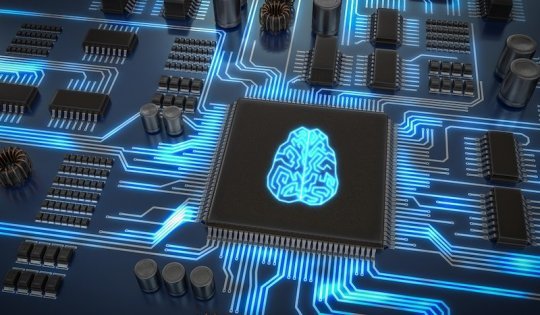Brain cell differences could be key to learning in humans and AI

The new study found that by tweaking the electrical properties of individual cells in simulations of brain networks, the networks learned faster than simulations with identical cells.
They also found that the networks needed fewer of the tweaked cells to get the same results, and that the method is less energy intensive than models with identical cells.
The authors say that their findings could teach us about why our brains are so good at learning, and might also help us to build better artificially intelligent systems, such as digital assistants that can recognise voices and faces, or self-driving car technology.
First author Nicolas Perez, a PhD student at Imperial College London's Department of Electrical and Electronic Engineering, said: "The brain needs to be energy efficient while still being able to excel at solving complex tasks. Our work suggests that having a diversity of neurons in both brains and AI systems fulfils both these requirements and could boost learning."
The brain is made up of billions of cells called neurons, which are connected by vast 'neural networks' that allow us to learn about the world. Neurons are like snowflakes: they look the same from a distance but on further inspection it's clear that no two are exactly alike.
By contrast, each cell in an artificial neural network -- the technology on which AI is based -- is identical, with only their connectivity varying. Despite the speed at which AI technology is advancing, their neural networks do not learn as accurately or quickly as the human brain -- and the researchers wondered if their lack of cell variability might be a culprit.
They set out to study whether emulating the brain by varying neural network cell properties could boost learning in AI. They found that the variability in the cells improved their learning and reduced energy consumption.
Lead author Dr Dan Goodman, of Imperial's Department of Electrical and Electronic Engineering, said: "Evolution has given us incredible brain functions -- most of which we are only just beginning to understand. Our research suggests that we can learn vital lessons from our own biology to make AI work better for us."
To carry out the study, the researchers focused on tweaking the "time constant" -- that is, how quickly each cell decides what it wants to do based on what the cells connected to it are doing. Some cells will decide very quickly, looking only at what the connected cells have just done. Other cells will be slower to react, basing their decision on what other cells have been doing for a while.
| Webiste | ScienceDaily- https://www.sciencedaily.com/ |
|---|---|
| Article Name | Brain cell differences could be key to learning in humans and AI |
| Source | Imperial College London |
| You can find the article here | https://www.sciencedaily.com/releases/2021/10/211006112626.htm |